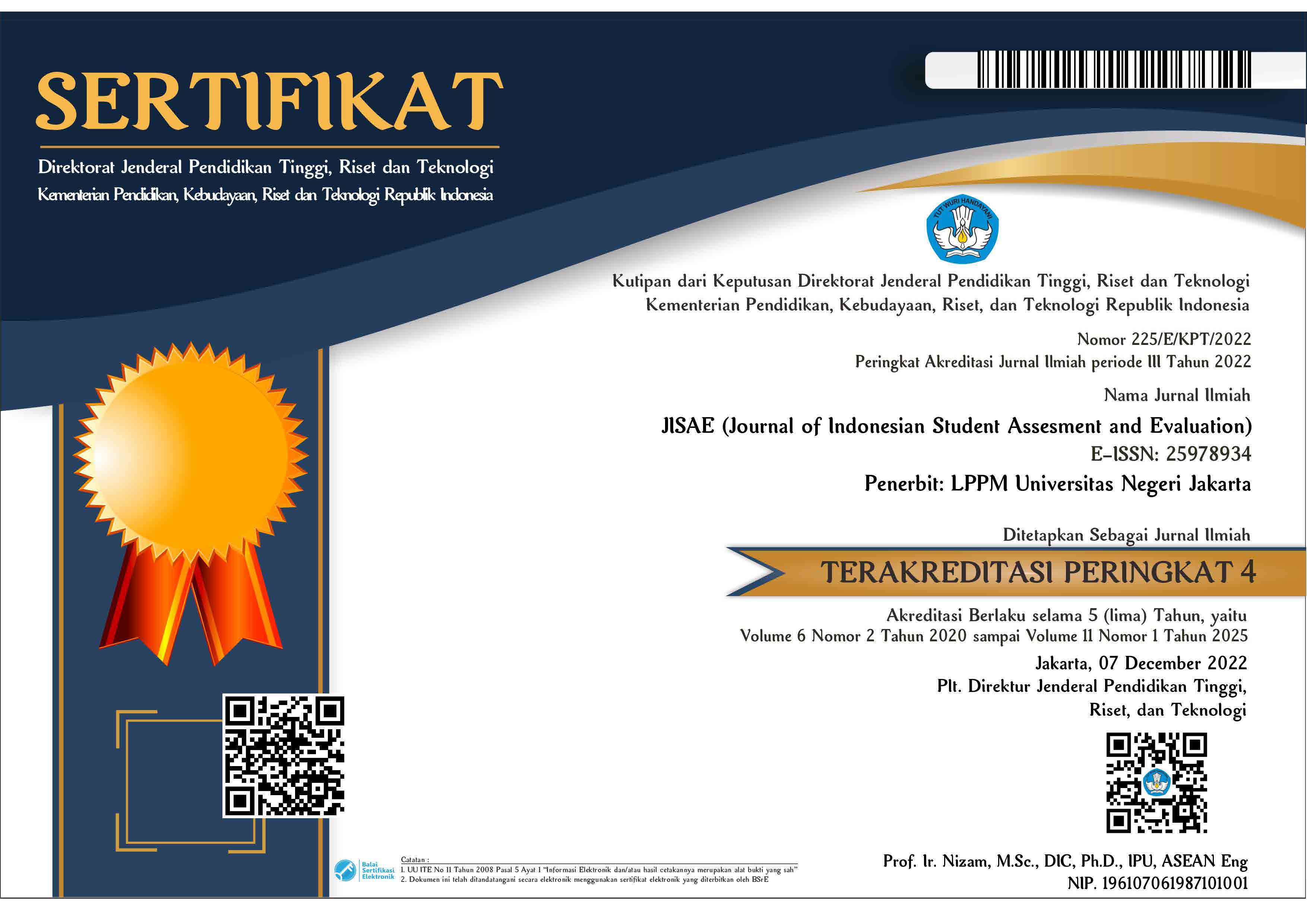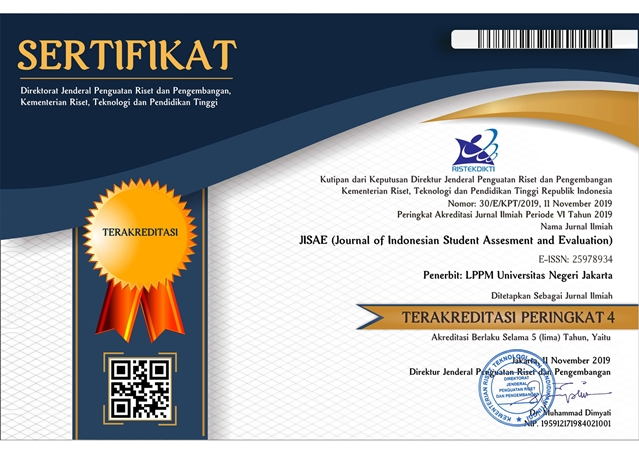The Influence of self efficacy and job satisfaction on the psychological wellbeing of the honorary teacher state highschool in Depok city
DOI:
https://doi.org/10.21009/jisae.v9i2.38383Abstract
The teacher acts as an agent of change which means that the teacher is very influential in reform in the world of education. Indonesia lacks ASN (State Civil Apparatus) teachers, so the Education Office and State Senior High School Principals recruit honorary teachers. The problems often faced by honorary teachers are unclear status, low welfare, and quality. This study aims to empirically examine the effect of self-efficacy and job satisfaction on the psychological well-being of honorary teachers at SMA Negeri in Depok. This research is a quantitative research using multiple linear regression test. The number of samples in this study were 125 respondents who were obtained through random sampling technique. This study used a questionnaire containing a scale of psychological well-being, a scale of self-efficacy, and a scale of job satisfaction. Based on the results of the analysis that has been carried out, the F value is 27.405 with a significance level of 0.000 (p <0.05) and an R Square value of 0.31 (31%). These results indicate that self-efficacy and job satisfaction together affect psychological well-being by 31% while 69% is influenced by other factors outside the study. Based on the research findings, self-efficacy and psychological well-being of honorary teachers are in the high category while job satisfaction is in the medium category.
Keywords: honorary teacher, self-efficacy, job satisfaction, psychological well-being










